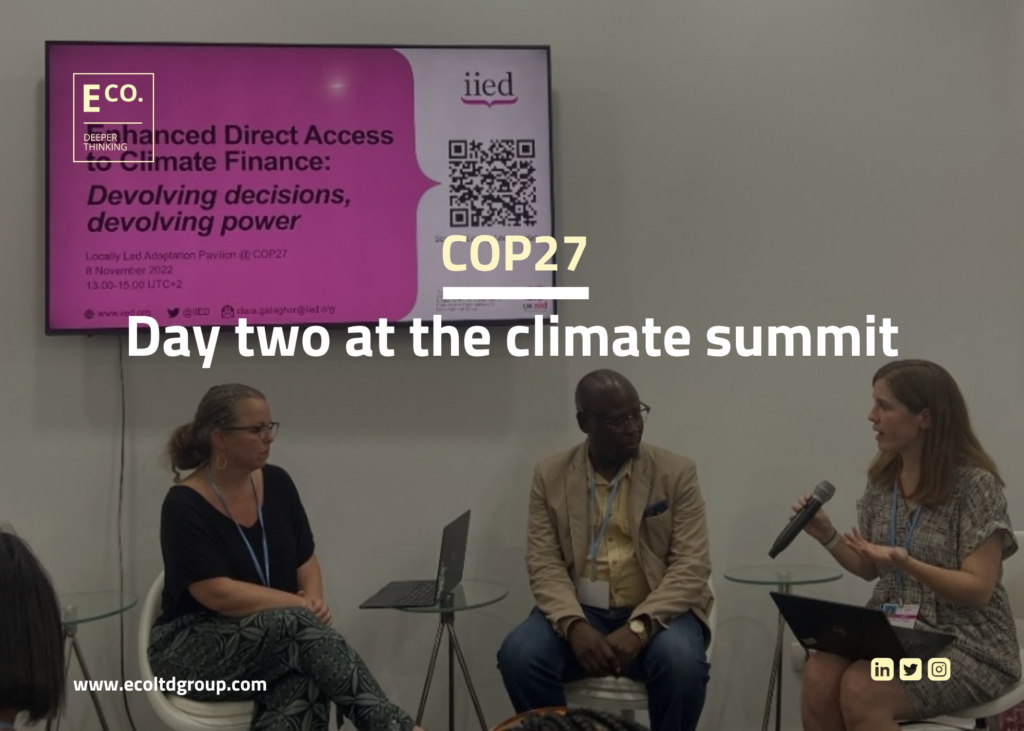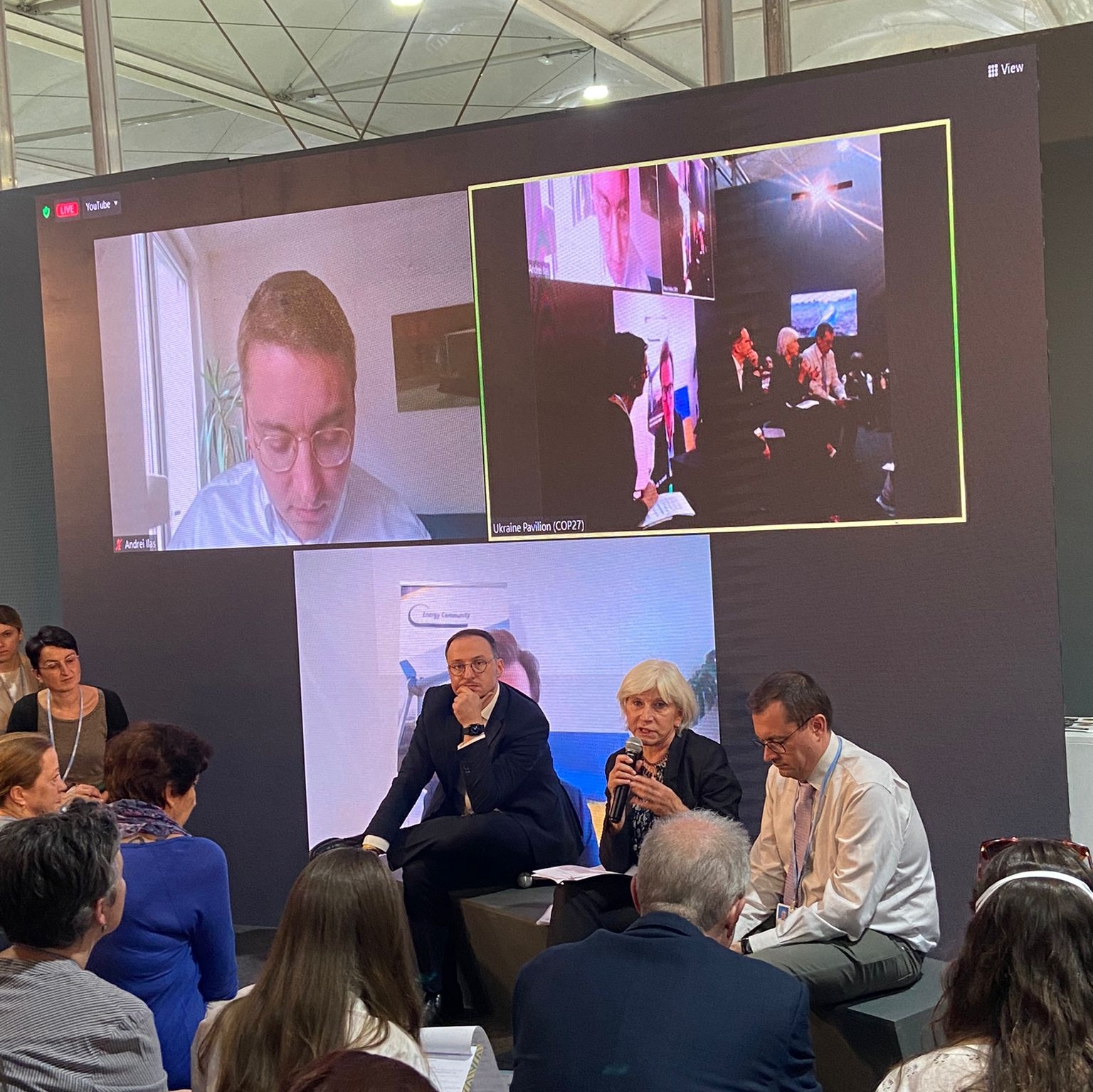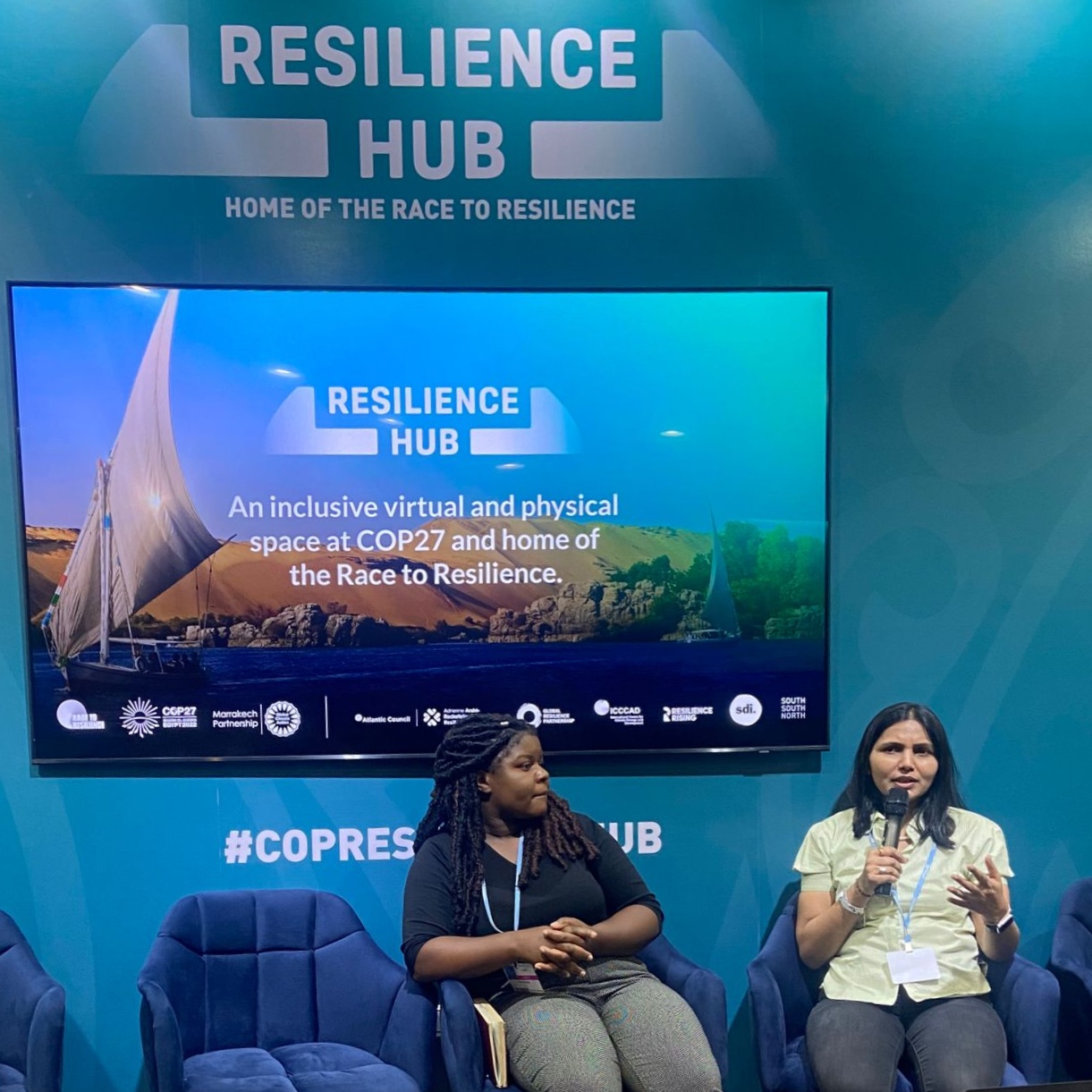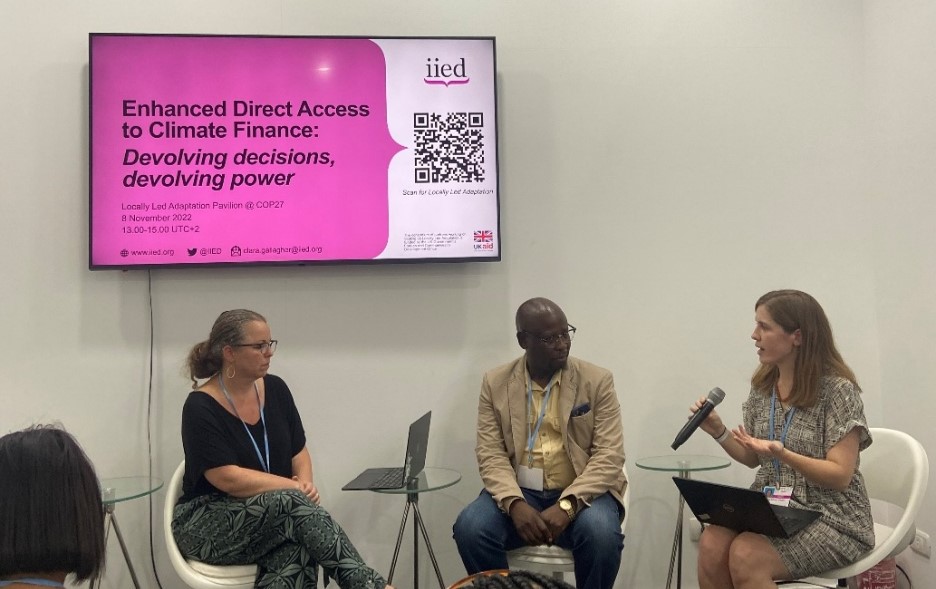COP27 series: Day two at the climate summit
8 November 2022, Category: All insights, News, Tags: climate change, climate finance, IIED, loss and damage, sustainable development, The Gates Foundation, UNFCCC

Today was day two of COP27. As the day progressed, there were several main announcements:
- The launch of the Forests and Climate Leaders’ Partnership (FCLP);
- The Gates Foundation announced USD 1.4 billion in grants for smallholder farmers;
- Ukraine held their first ever COP pavilion to show continuing commitment to climate action;
- The Resilience Hub held a session discussing the need to differentiate loss and damage functions from traditional adaptation projects;
- The Locally Led Adaptation (LLA) hub explored the topic of community-based approaches to climate change.
Let’s delve deeper into these proceedings.
The Forests and Climate Leaders’ Partnership
The Forests and Climate Leaders’ Partnership (FCLP) was launched, committing to halt and reverse forest loss and land degradation by 2030. It is a partnership of 26 countries committed to delivery, accountability and innovation following the Glasgow Leaders’ Declaration on Forests and Land Use. If the partnership is successful, it will deliver 10% of the climate mitigation action needed by 2030 to deliver on the Paris Agreement. The partnership accounts for 60% of global GDP and over 33% of the world’s forests.
USD 1.4 Billion for smallholder farmers
The Gates Foundation announced USD 1.4 billion in grants for smallholder farmers in a bid to scale up adaptation finance which remains worryingly imbalanced compared to mitigation financing. Agriculture is the highest polluting sector globally and two billion people depend on smallholder farmers for food and income. In many regions, women form the critical foundation for agricultural work and output yet receive limited access to finance, technologies and other resources. This grant funding will go towards climate-smart agriculture projects, new applications of digital technologies and other innovations, and support women farmers.
Ukraine’s first ever COP pavilion
Another emerging theme both at the level of the World Leader’s Summit and discussed throughout the pavilions is that of the war in Ukraine. Ukraine is hosting their first ever COP pavilion to show that they remain committed to climate ambitions.Last night, world leaders including the current and former UK prime ministers, cited the war as a reason why for limited progress on climate this year, as sudden energy insecurity spread throughout Europe. This was echoed at an event at the pavilion where panellists including the Head of the European Climate Foundation, Laurence Tubiana, discussed the impacts of the war on climate policy. She acknowledged that the war exposed an enormous overreliance on oil and gas that will likely see short-term shifts towards more carbon-intensive energy sources as countries scramble to compensate for shortages. However, over the longer term, it may accelerate the transition to mass renewable energy infrastructure as countries seek to enhance their domestic energy security.

Impact of war on European climate policies at Ukraine Pavilion
Loss and damage
As pointed out in our ‘things to look out for’ section yesterday, loss and damage is a popular topic both in speeches by world leaders and in the sessions at the pavilions.
The Resilience Hub today played host to a discussion on paying for loss and damage. In particular, speakers focused on the need to distinguish it from traditional adaptation financing as a standalone topic. Speakers from Malawi, Fiji and a researcher from the International Institute for Environment and Development (IIED) presented how best, they believe, financing for loss and damage could occur.
An interesting suggestion was that of establishing national facilities that can provide a dynamic and flexible approach when extreme weather events occur. The need for immediate relief after disasters means the largest international climate funds are simply not suitable for funding loss and damage efforts. Receiving money from these funds requires accreditation and a long proposal process, which means it would take too long to pay out to be an effective option.
Participants pointed to a lack of research yielding reliable data on loss and damage. They suggested undertaking multidimensional risk assessments to understand the needs of countries and then including quantified targets explicitly focusing on loss and damage in updated NDCs. Moreover, having a greater focus on community-driven responses is essential to develop suitable solutions. A bottom-up approach that starts locally and scales to the national level would not only enable a much more agile approach but also ensure country ownership.

What does effective loss and damage look like? at the Resilience Hub
Community approaches to climate change
A community approach to tackling climate change was also on the agenda at the Locally Led Adaptation (LLA) pavilion. Panellists from the Micronesia Conservation Trust and the Environmental Investment Fund of Namibia shared experiences relating to enhanced direct access (EDA) projects, including the process of applying to major climate funds and the benefits that come from EDA. EDA allows for the enhanced devolution of decision-making whereby both funding decisions and project oversight take place at the national or regional level.
Often projects contain individual sub-projects that are difficult, or nearly impossible, to identify ahead of time, especially if a project lasts beyond the short term. EDA allows the decision-making mechanism for sub-projects to be devolved at the country level through pre-approved selection criteria without granular detail needed at the funding proposal stage, which ultimately allows for a more stakeholder-driven and context-specific approach.
Deep dive: The most important developments for climate finance at COP27
Climate finance was a vitally important topic under discussion at COP27, and many game-changing decisions were made at the summit.
We’ve developed a handy deep dive guide into these decisions and what they mean for the wider world of climate finance and climate resilience.
Keep up to date with climate finance at COP27
If you’re interested in following Marcus’ on-the-ground reporting of climate finance at COP27, follow us on Twitter or LinkedIn, where we will be posting these articles for your perusal. Click the links below to follow us:
Twitter: @ecoltdnews
LinkedIn: E Co.
Instagram: @ecoltdnews
Looking for insight on climate finance? Look no further
Let’s accelerate progress together: Get in touch with our climate finance consultants to discuss a project you’re working on. Email us at: amy@ecoltdgroup.com.
Please feel free to share your comments below.

Join the conversation by posting a comment below. You can either use your social account, by clicking on the corresponding icons or simply fill in the form below. All comments are moderated.